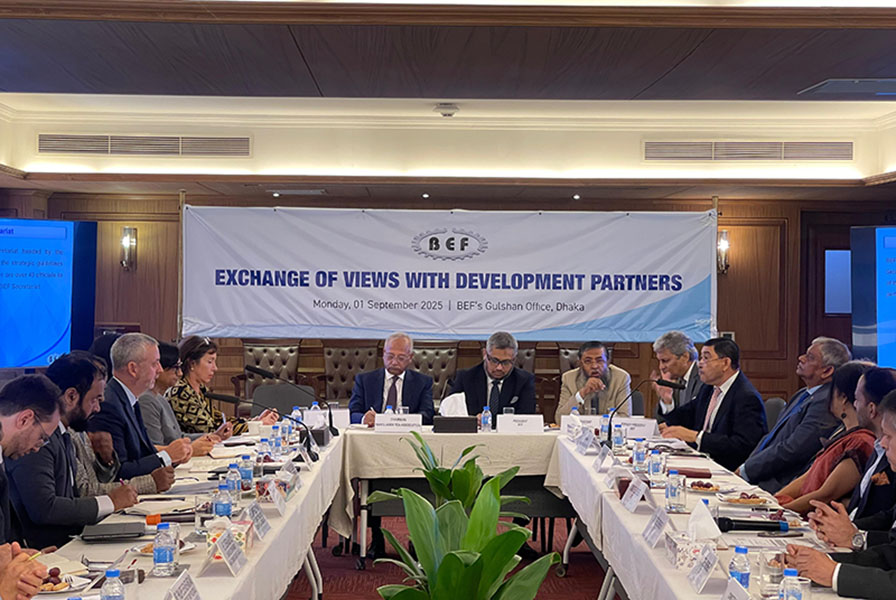
Published :
Updated :

Advancement of labour rights would contribute to Bangladesh’s competitiveness and reduce reputational risks for companies, representatives from the foreign community said on Monday.
Diplomatic missions also welcomed and expressed support for the interim government’s commitment to reform the Bangladesh Labour Act in line with international labour standards, with an ordinance expected no later than October.
However, employers observed that these remarks, while well-intentioned, appeared largely driven by external perspectives and expectations, rather than a full appreciation of domestic priorities and challenges.
The observations came at an open exchange of views organised by the Bangladesh Employers’ Federation (BEF) at its office in the city, where members of the diplomatic community shared their priorities, aspirations, and perspectives on supporting Bangladesh in its socio-economic transition, according to a statement.
The BEF statement added that the discussion covered the August 26 tripartite review and amendment of the Bangladesh Labour Act, which is the cornerstone of the reforms the government has committed to under both the EU National Action Plan and the ILO Governing Body roadmap.
In his welcome remarks, BEF President Fazlee Shamim Ehsan stressed the importance of fulfilling commitments while also acknowledging the evolving challenges faced by employers and investors in a rapidly changing labour market and complex geopolitical environment.
BEF Secretary-General and CEO Farooq Ahmed presented an overview of the Federation’s ongoing activities, including advocacy on labour law reforms, skills development, and capacity-building for enterprises and regulatory bodies.
Participants welcomed the constructive dialogue and expressed mutual interest in continuing such engagements to further strengthen collaboration in promoting decent work, enterprise resilience, and Bangladesh’s broader socio-economic progress.
They also emphasised that the government should consult further with social partners and reach consensus-based solutions.
Among those present were US Chargé d’Affaires Ambassador Tracey Ann Jacobson, Head of the EU Delegation Michael Miller, Acting British High Commissioner James Goldman, Canadian Chargée d’Affaires Debra Boyce, a representative from the ILO, as well as officials from the Netherlands, Denmark, Sweden, and leaders of major trade associations including BKMEA, BGMEA, and the Bangladesh Tea Association.


 For all latest news, follow The Financial Express Google News channel.
For all latest news, follow The Financial Express Google News channel.